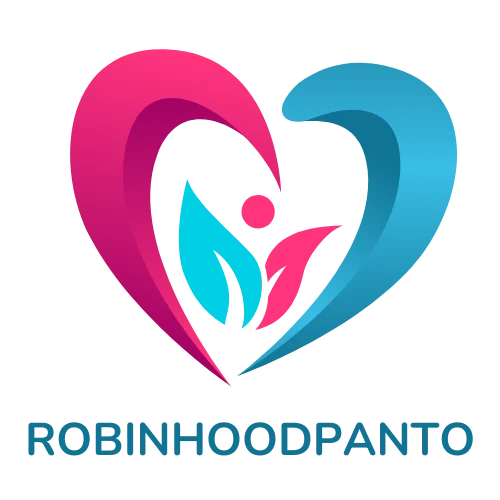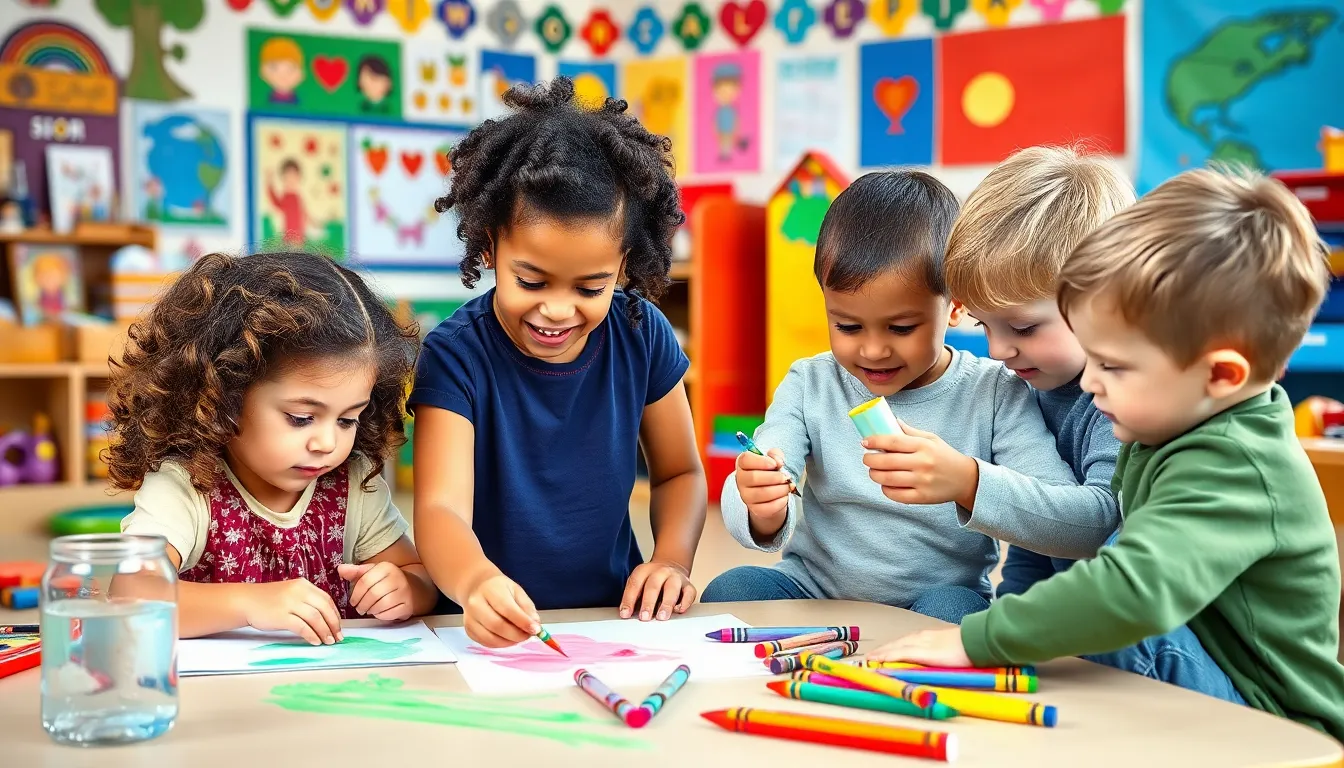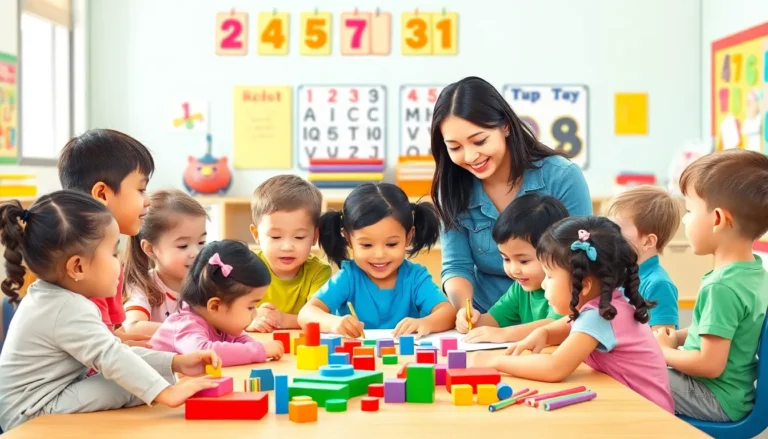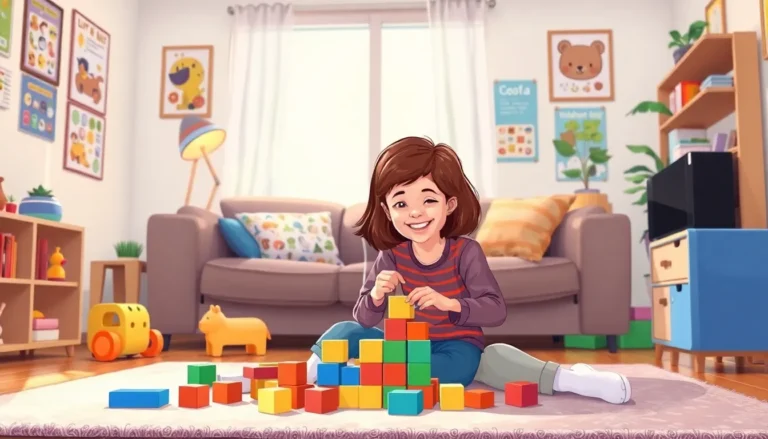Table of Contents
ToggleIn a world where tiny humans are busy mastering the art of tantrums and snack negotiations, a solid preschool curriculum can be the secret sauce to their success. Imagine a place where learning feels like play, and where every crayon scribble is a step toward brilliance. It’s not just about ABCs and 123s; it’s about nurturing creativity, social skills, and a love for discovery that’ll last a lifetime.
Parents often wonder if their little ones are getting the best start possible. With the right curriculum, preschool can be a magical experience filled with laughter, exploration, and the occasional glitter explosion. So, let’s dive into the world of preschool curricula and uncover how it shapes young minds, one playful lesson at a time. After all, who knew that learning could be so much fun?
Overview of Preschool Curriculum
A preschool curriculum encompasses a holistic approach aimed at developing various skills in young children. Creativity finds support through activities like art, music, and imaginative play. Social skills emerge from interactions with peers and participation in group activities. Emotional development combines self-regulation and expression guided by caring educators.
Language and literacy components play a significant role in the curriculum. Exposure to stories, songs, and rhymes enhances vocabulary and comprehension. Early literacy activities, such as name recognition and letter sounds, facilitate a foundation for future reading success.
Mathematics in preschool extends beyond counting and numbers. Concepts like shapes, patterns, and measurements introduce problem-solving and logical thinking. Hands-on experiences, including blocks and sorting games, engage children while reinforcing mathematical concepts.
Physical development receives equal emphasis through gross and fine motor activities. Activities like jumping, running, and climbing contribute to muscle development and coordination. Fine motor skills enhance through tasks like drawing, cutting, and playing with manipulatives.
Science exploration fosters curiosity and inquiry. Simple experiments and nature walks inspire observation and critical thinking. Children learn to ask questions and investigate their environment, laying the groundwork for scientific understanding.
Cultural awareness is another vital element in a preschool curriculum. Exposure to diverse cultures through stories and celebrations promotes respect and inclusivity. Early introductions to different traditions build a broader worldview.
Overall, an effective preschool curriculum balances all these components. When each area receives attention, children develop into well-rounded individuals. The right curriculum fosters a joyful environment where learning transforms into play.
Key Components of Preschool Curriculum
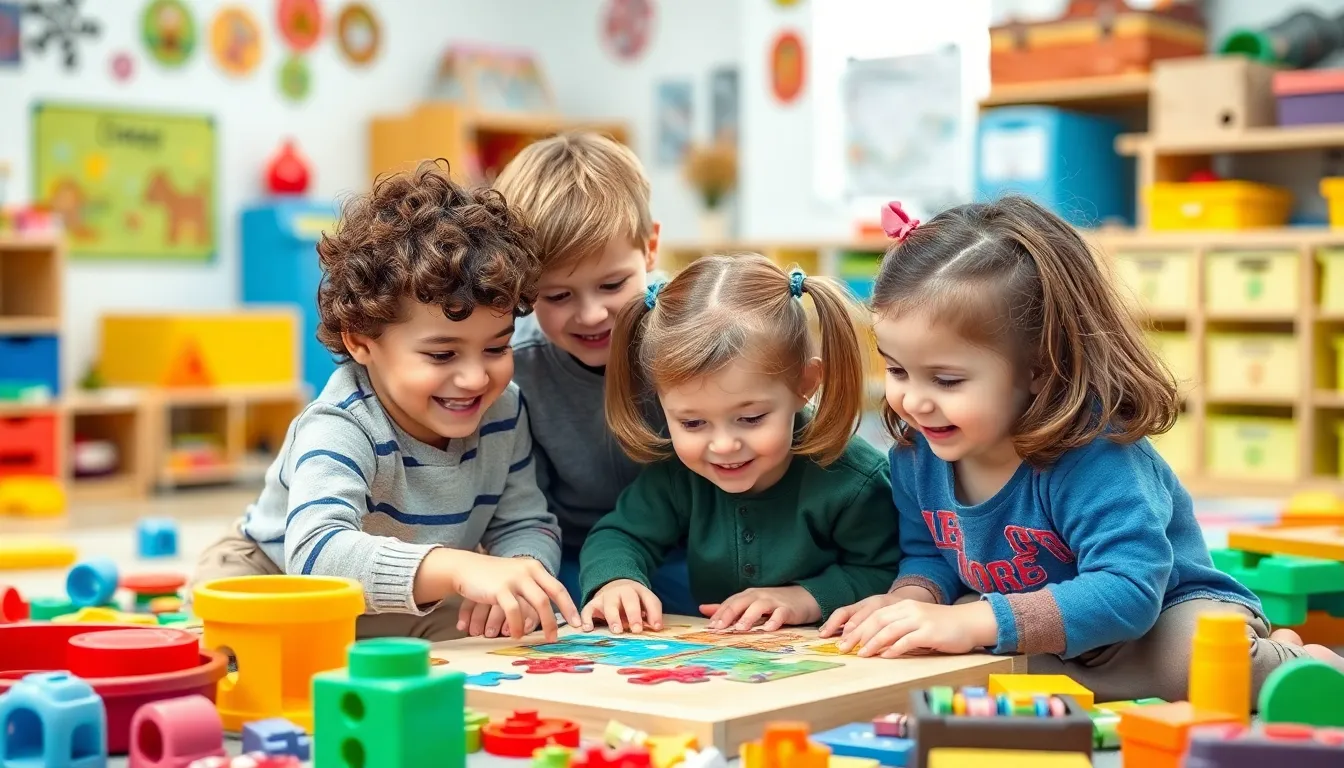
A balanced preschool curriculum incorporates various essential components that contribute to holistic child development.
Cognitive Development
Cognitive development engages young minds in critical thinking and problem-solving. It focuses on activities that stimulate curiosity and encourage exploration. Children benefit from hands-on experiences, such as puzzles and games, which enhance reasoning skills. Exploring basic math concepts like counting and sorting fosters logical thinking. Furthermore, storytelling enriches comprehension, helping children connect ideas and express thoughts. Science activities, like observing nature, encourage questioning and provide opportunities for discovery. Each of these elements promotes a foundation for lifelong learning.
Social and Emotional Development
Social and emotional development is vital for nurturing interpersonal skills. Interactions with peers during group activities teach sharing, cooperation, and conflict resolution. Children gain confidence through role-playing scenarios that reflect real-life situations. Educators support emotional expression by guiding discussions about feelings and friendships. This approach builds empathy and understanding toward others. Additionally, structured routines help children develop a sense of security and predictability, facilitating emotional regulation. Each of these strategies contributes to a supportive learning environment.
Physical Development
Physical development emphasizes gross and fine motor skills essential for daily activities. Engaging in play-based activities, such as climbing and running, promotes strength and coordination. Fine motor skills are enhanced through crafts and writing exercises, allowing for improved dexterity. Outdoor play encourages children to explore their surroundings, fostering spatial awareness and balance. Incorporating movement into learning activities helps children develop healthy habits and a love for physical activity. Each of these elements plays a crucial role in forming a well-rounded individual.
Types of Preschool Curricula
Preschool curricula come in various forms, each designed to meet the developmental needs of young children. Understanding these types helps parents choose the best fit for their child.
Play-Based Curriculum
Play-based curricula prioritize hands-on experiences where play drives learning. Children explore concepts through interactive play, fostering creativity and imagination. Engaging with peers encourages social skills and emotional development. Everyday activities, such as block building and role-playing, enhance problem-solving skills. Teachers guide children in discovering new ideas while allowing freedom of exploration. Benefits include increased motivation and enjoyment in learning, leading to a positive foundation for lifelong education.
Academic Curriculum
Academic curricula focus on structured learning activities emphasizing core subjects like literacy and mathematics. Children engage in activities designed to develop early reading and writing skills, along with foundational math concepts. Teachers present lessons through interactive and engaging formats, enhancing comprehension. Children practice skills through worksheets, group work, and structured play. This approach prepares students for future academic success but may offer less flexibility in individual exploration compared to other curricula.
Montessori Curriculum
Montessori curricula follow a child-centered approach that encourages independent learning through carefully prepared environments. Children choose activities that interest them, allowing for self-directed exploration. Specific materials support hands-on learning experiences, developing critical thinking and problem-solving skills. Teachers act as facilitators, observing and guiding rather than leading rigidly. Emphasis on mixed-age classrooms fosters peer learning and collaboration. This approach also cultivates a strong sense of responsibility and respect for each other and the environment.
Importance of a Well-Structured Preschool Curriculum
A well-structured preschool curriculum plays a critical role in child development. Development extends far beyond basic academic skills like reading and math. Creativity nurtures through diverse activities such as art, music, and imaginative play. Engaging in peer interactions fosters essential social skills.
Caring educators guide emotional development through self-regulation and expression. Language and literacy components enhance vocabulary and comprehension via exposure to stories, songs, and rhymes. Early literacy activities build foundational skills like name recognition and letter sounds, leading to future reading success.
Mathematics includes more than just counting. Concepts such as shapes, patterns, and measurements engage children in problem-solving and logical thinking. Physical development also merits attention, emphasizing gross and fine motor activities that develop muscle coordination.
Science exploration instills curiosity and inquiry. Simple experiments and nature walks inspire observation and critical thinking. Cultural awareness promotes respect and inclusivity by exposing children to diverse cultures and traditions.
Key components of a balanced preschool curriculum engage cognitive development. Hands-on activities like puzzles and storytelling invite critical thinking and problem-solving. Social and emotional development flourishes through group activities that teach sharing, cooperation, and conflict resolution.
Play-based activities enhance physical development by promoting strength and coordination. Effective preschool curricula balance these vital components, cultivating well-rounded individuals in joyful environments. Leverage this framework to create enriching experiences that transform learning into play.
A thoughtfully designed preschool curriculum sets the stage for a child’s lifelong journey of learning and growth. By integrating various developmental components such as creativity, social skills, and emotional intelligence, it cultivates well-rounded individuals ready to face future challenges.
Parents can take comfort in knowing that a balanced curriculum not only emphasizes academic readiness but also nurtures curiosity and a love for exploration. Choosing the right approach—whether play-based, academic, or Montessori—ensures that each child receives the support they need to thrive.
Ultimately, a quality preschool experience transforms learning into a joyful adventure, laying a solid foundation for success in all areas of life.
